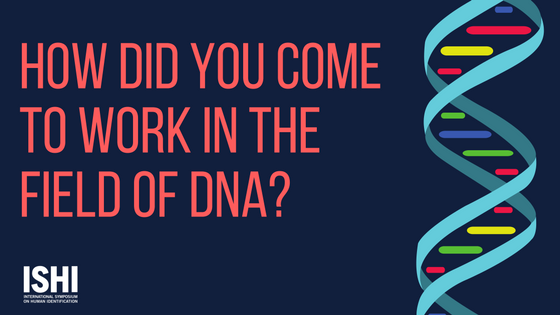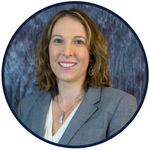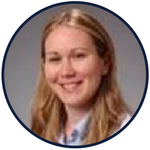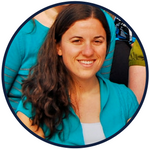We asked our ISHI 27 speakers how they came to work in the field of DNA. Read below to see how they found their calling and then join the discussion on our Facebook or Twitter pages to let us know what inspired you to work in the forensic science field.
“During my senior year of college, my laboratory professor introduced me to the world of forensics and forever changed my career path.”
Alice Chung, SNA International
 “By coincidence I was assigned to try a triple murder case that involved conventional serology, the precursor to forensic DNA typing. I conducted an admissibility hearing that established the legal precedent for admissibility of serology. It became a big deal in the forensic community and I was invited to speak at meetings. Soon thereafter forensic DNA hit the horizon and I was invited to participate in many of the seminal meetings concerning DNA, including the first Promega meetings held in Madison.”
“By coincidence I was assigned to try a triple murder case that involved conventional serology, the precursor to forensic DNA typing. I conducted an admissibility hearing that established the legal precedent for admissibility of serology. It became a big deal in the forensic community and I was invited to speak at meetings. Soon thereafter forensic DNA hit the horizon and I was invited to participate in many of the seminal meetings concerning DNA, including the first Promega meetings held in Madison.”
Rockne Harmon, Alameda County District Attorney’s Office (retired)
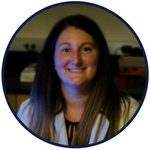 “I’m from a small town in Canada, and forensics really isn’t a big thing there, because let’s be honest, there isn’t a lot happening there. After learning about DNA fingerprinting in 11th grade biology, I started exploring college and career options in forensic science. I started my journey in the forensics BS program at the University of Toronto, and life has been an exciting adventure of taking risks, moving around Canada and the United States, and saying YES to the opportunities that have been offered, while committing a lot of hard work and dedication to my long-term career aspirations. I’ve found true love with forensic genetics, and I look forward to all of the adventures that await in the future.”
“I’m from a small town in Canada, and forensics really isn’t a big thing there, because let’s be honest, there isn’t a lot happening there. After learning about DNA fingerprinting in 11th grade biology, I started exploring college and career options in forensic science. I started my journey in the forensics BS program at the University of Toronto, and life has been an exciting adventure of taking risks, moving around Canada and the United States, and saying YES to the opportunities that have been offered, while committing a lot of hard work and dedication to my long-term career aspirations. I’ve found true love with forensic genetics, and I look forward to all of the adventures that await in the future.”
Nicole Novroski, University of North Texas Health Science Center
 “I have always been fascinated by the structure of DNA’s double helix. I want to study all of its mechanisms and applications, more specifically, to the field of forensic science. In it’s intricacies, I believe we can make groundbreaking discoveries and push the field forward.”
“I have always been fascinated by the structure of DNA’s double helix. I want to study all of its mechanisms and applications, more specifically, to the field of forensic science. In it’s intricacies, I believe we can make groundbreaking discoveries and push the field forward.”
Rachel Wiley, University of North Texas Health Science Center
“I have Master of Science Degree in Biotechnology and always wanted to work with human DNA. I started working in Medical Genetics Laboratory in IUPUI (Indiana University Perdue University Indianapolis) in 2000. In addition to the genetic testing we were working on paternity and forensic cases.”
Hristina Lekova, Cuyahoga County Medical Examiner’s Office
“When I was completing my undergraduate work at Virginia Tech, I was working on a reproductive biology research project involving sheep. During our trial, some of the sheep died unexpectedly and we ordered necropsies to understand the cause of death. This experience opened my mind to the detective side of science and piqued my interest in the field of forensic science. From there, I continued my education at Michigan State University with a focus on forensic science and then began my professional career as a forensic DNA scientist at the Michigan State Police.”
Julie French, GE Healthcare
“I stumbled upon a graduate degree program at UNTHSC in Forensic Genetics and upon completing that degree was lucky enough to be hired by the UNT Center for Human ID.”
Kendra Felipe-Ortega, University of North Texas Health Science Center
“I always knew I wanted to do something within the medical field and I was also highly interested in criminal justice, and forensic science seemed like the perfect combination of both.”
Tatiana Perez, NYC Office of Chief Medical Examiner
“Started in undergrad doing a research project on a “Twinning Gene”, which I had a personal interest in since I am an identical twin. From there I looked into DNA focused fields and found Forensic DNA testing, and from there the rest is history.”
Samantha Rynas, New Mexico Department of Public Safety Northern Forensic Laboratory
“In college I was pursuing Criminal Justice, I took a Forensic Science elective and was hooked. I immediately decided to add a Forensic Science Minor.”
Rachel Oefelein, DNA Labs International
“After my Master’s in medical genetics, I sought an opportunity to apply genetic technologies rather than conduct more basic research. This led me to an entry-level position as a forensic DNA analyst. I left after a couple years to pursue other opportunities applying genetics in biotechnology and medical diagnostics. As I entered the DNA policy arena at the Genetics & Public Policy Center, I was the only staff with knowledge of forensic DNA. So I came full circle back to a focus, at least partially, on policy in forensic DNA applications.”
Sara Katsanis, Duke University
 “It all started with a case. Right after our local lab began using RFLP technology, a visiting foreign professor who was teaching a local university was the victim of a brutal attack. A fingerprint hit and multiple DNA matches led to the defendant and ultimately cinched the case. After that, I was hooked and began to specialize in cases involving forensic DNA technologies.”
“It all started with a case. Right after our local lab began using RFLP technology, a visiting foreign professor who was teaching a local university was the victim of a brutal attack. A fingerprint hit and multiple DNA matches led to the defendant and ultimately cinched the case. After that, I was hooked and began to specialize in cases involving forensic DNA technologies.”
Ted Hunt, Prosecuting Attorney’s Office, Jackson County Missouri
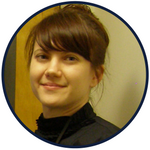 “I had just completed my undergraduate education and was interested in continuing my education. A colleague and mentor suggested I look into forensic science programs. I did as she suggested, and ended up enrolling in the M.S.F.S. program at UAB.”
“I had just completed my undergraduate education and was interested in continuing my education. A colleague and mentor suggested I look into forensic science programs. I did as she suggested, and ended up enrolling in the M.S.F.S. program at UAB.”
Catherine Grgicak, Boston University School of Medicine
 “I was originally very intrigued by the show Quincy M.E. and the fact that science could help solve crimes. I then began reading true crime books like Helter Skelter and case references as well. That all led to a B.S. in Biology and a M.S. in Forensics, jobs as a Crime Scene Technician, and then a DNA Analyst before becoming a Physical Scientist/Program Manager at NIJ. Forensic Biology/Serology/and DNA was always my specific area of interest.”
“I was originally very intrigued by the show Quincy M.E. and the fact that science could help solve crimes. I then began reading true crime books like Helter Skelter and case references as well. That all led to a B.S. in Biology and a M.S. in Forensics, jobs as a Crime Scene Technician, and then a DNA Analyst before becoming a Physical Scientist/Program Manager at NIJ. Forensic Biology/Serology/and DNA was always my specific area of interest.”
Chuck Heurich, National Institute of Justice
WOULD YOU LIKE TO SEE MORE ARTICLES LIKE THIS? SUBSCRIBE TO THE ISHI BLOG BELOW!

